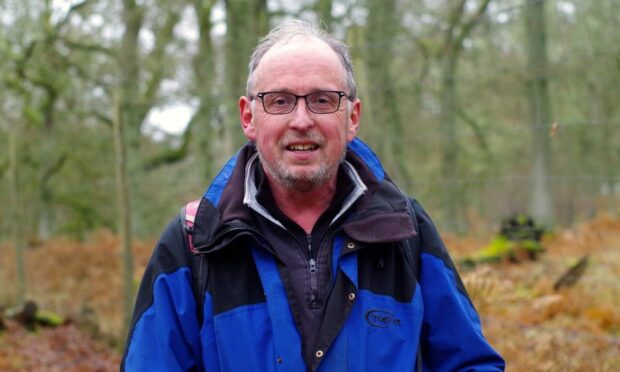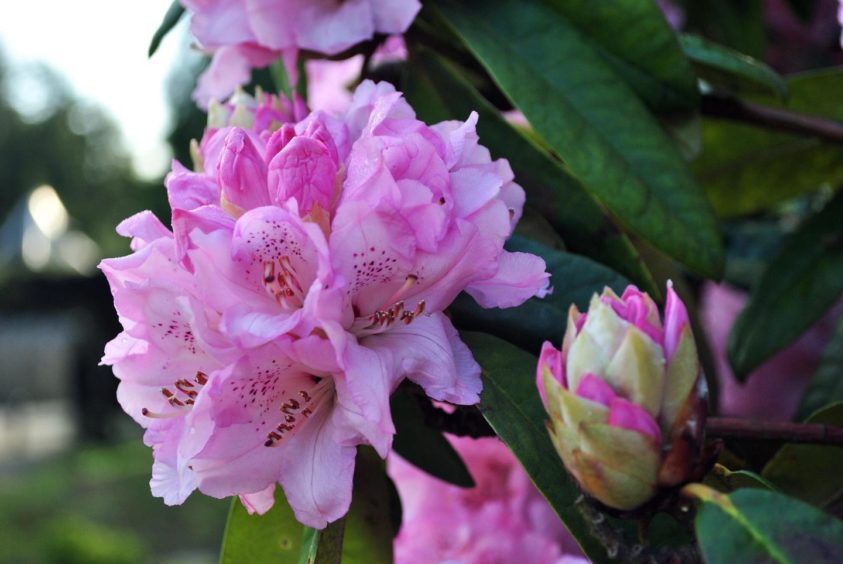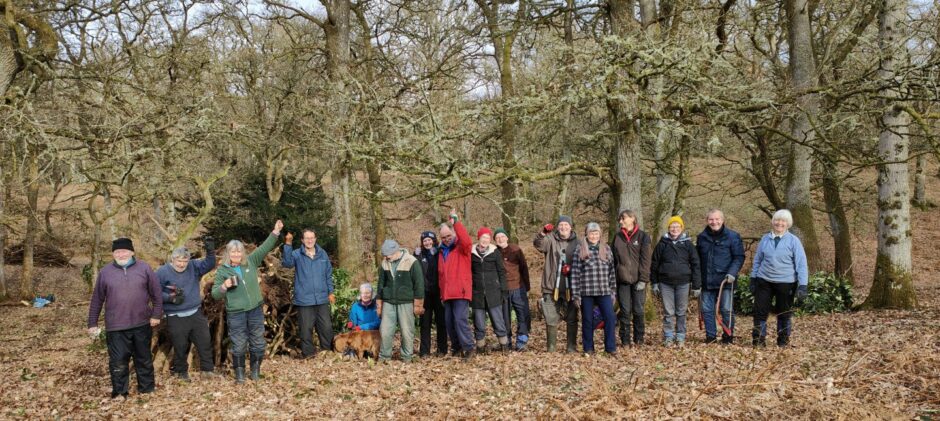Former submariner Ian Riches says they are often called “sun-dodgers”. Now, he gets as much sun – and nature – as he can.
Ian has been leading a volunteering group at Kinclaven Bluebell Wood for the last six years.
During that time, the 65-year-old has seen the benefits of getting to know your local woodland, and working hard to protect it.
Ian spent almost forty years working with or on submarines with the Royal Navy.
“So for me,” he said, “it’s an opportunity to be out in the open air. With my background, that was not available to me for long periods of time.
“Go out and explore your surroundings,” he advises, “use the countryside.
“The fresh air allows a re-engagement with reality.
“It’s nice to stop and slow down and look.”
Local woods are his ‘church’
Ian continued: “I’m lucky I was brought up by family who enjoyed going for walks in the countryside.
“I’m a Christian but I don’t go to church all that often, instead I look around at the woods.
“I look at where I am. And that’s my church, that’s my place of peace where I can rationalise things.”
A lot of Ian’s time in his beloved local woodland has involved hacking, sawing and digging.
In particular, when it comes to the invasive rhododendrons.
That may not sound very peaceful, but the end result has brought about a lot of pride for Ian and the other hardy volunteers.
This task, known as “rhodie-bashing”, is by far the most popular for Woodland Working Group – but what exactly is it?
Rhodies bashed out for good
Rogue rhododendrons have been a saboteur for the woodland for some time, and their impact on native woodlands was revealed in 2021.
The volunteers have spent almost 2,000 hours in the Kinclaven Bluebell Wood, orchestrating the demise of the pesky plant.
After four years of hard work, they have finally beaten the rhododendron ponticum for good.
Ian said there is an “instant gratification” that comes with rhodie-bashing.
“You walk away after half a day or a whole day and you can see the difference you’ve made.
“It has taken a long time so it was all the more satisfying to hack out the very last bush.”
If you take his advice and head out into your local woodland, Ian has a reminder.
“It’s easy for people to think it’s someone else’s problem when we drop litter or don’t clear up after our dogs,” he said.
“Well, that other person is me, and my fellow volunteers.”
“Responsible behaviour” is key.













Conversation